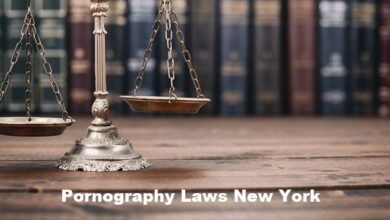North Carolina Pornography Law: A Detailed Analysis of 2024

Are you interested in learning about the legal landscape surrounding pornography in North Carolina? Let’s delve into the intricacies of the North Carolina pornography law and explore its implications for individuals and society as a whole.
What is the North Carolina Pornography Law?
The North Carolina pornography law encompasses statutes and regulations governing the production, distribution, and consumption of pornographic material within the state.
These laws aim to regulate adult content to protect public morality, prevent exploitation, and safeguard against harmful effects on minors.
Legal Framework and Enforcement
The North Carolina pornography law is grounded in state statutes that define what constitutes obscenity and regulate the production and dissemination of sexually explicit material.
Law enforcement agencies work to enforce these regulations, investigating cases of illegal pornography production, distribution, and possession.
Impact on Society
The implementation of the North Carolina pornography law has far-reaching implications for society. Advocates argue that strict regulation is necessary to protect individuals, especially minors, from exposure to harmful and exploitative content. However, critics raise concerns about freedom of expression and the potential for censorship.
Real-Life Examples
Consider a case where individuals are arrested for operating an illegal pornography production studio in North Carolina.
Law enforcement authorities, acting under the provisions of the state’s pornography law, conduct a raid and seize equipment and materials associated with the production and distribution of illicit content. This serves as a tangible example of how the law is applied in real-world scenarios.
Legal Challenges and Controversies
The North Carolina pornography law is not without its challenges and controversies. Legal debates often arise over the definition of obscenity and the boundaries of free speech.
Additionally, advancements in technology have led to new questions regarding online pornography and its regulation under state law.
Conclusion
In conclusion, the North Carolina pornography law reflects society’s efforts to balance the protection of public morality and individual freedoms in the digital age.
While intended to regulate the production and distribution of explicit material, it remains a subject of ongoing debate and legal scrutiny.
As technology continues to evolve and societal attitudes shift, the legal framework surrounding pornography in North Carolina may undergo further changes to adapt to new challenges and realities.




